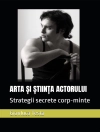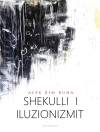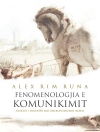In Early Modern times, techniques of assembling, compiling and arranging pre-existing material were part of the established working methods in many arts. In the world of 18th-century opera, such practices ensured that operas could become a commercial success because the substitution or compilation of arias fitting the singer’s abilities proved the best recipe for fulfilling the expectations of audiences. Known as »pasticcios« since the 18th-century, these operas have long been considered inferior patchwork. The volume collects essays that reconsider the pasticcio, contextualize it, define its preconditions, look at its material aspects and uncover its aesthetical principles.
O autorze
Gesa zur Nieden (Prof. Dr.), geb. 1978, lehrt Musikwissenschaft an der Universität Greifswald. Ihre Forschungs- und Publikationsschwerpunkte liegen auf der frühneuzeitlichen Musikermobilität, auf Räumen und Bauten für Musik, auf intermedialen Dimensionen der Musik und der Wagner-Rezeption nach 1945.












